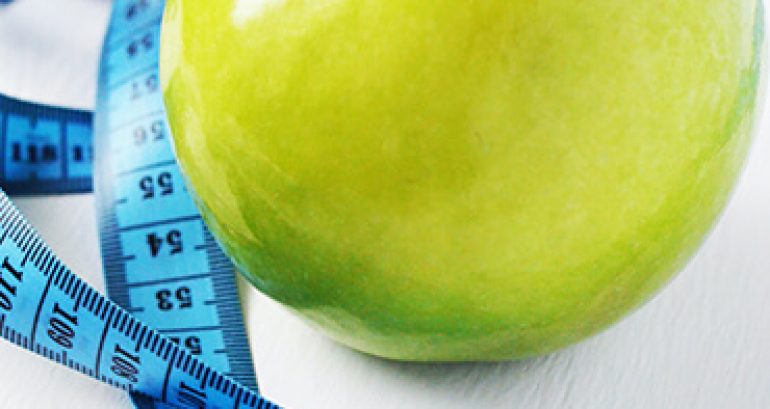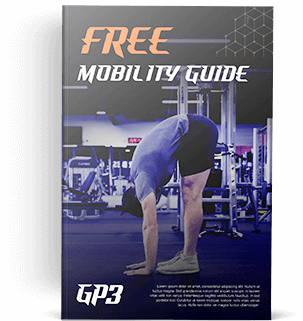Key Points:
1. Nutrition is incredibly personal. Fad diets aren’t.
2. I’ve provided two unique tools that will help you figure out the best strategy and tactics for you, specifically.
3. Strategy is the overarching plan behind the goal you want to achieve. Tactics are the specific actions you take to achieve it.
Estimated reading time 4-8 minutes
Last week, we talked about my “complicated relationship” with counting calories. To briefly summarize, I think it’s simultaneously one of the best and worst methods for changing your weight. Best, because it’s the only one that’s guaranteed to work if done correctly. Worst, because there are so many barriers to doing it correctly that most people find it more trouble than it’s worth. Plus, it can easily become an obsession that sucks the joy out of eating.
This week, we’re going to discuss what you can do instead. We’re going to utilize two main tools. I’ve included links below so you can make copies and start using them immediately, if you feel so inclined.
I’ve included instructions for how to use these tools in each document, and I plan on sharing a deep dive into them with you next week. For now, understand that the main point of them is to allow you to see the results you want without feeling miserable in the process, and to make the changes stick.
Stop me if you’ve heard that one before.
Here’s the difference. These tools are all about you. They don’t try to rigidly force you into someone else’s framework or a style of eating that people adhere to with religious fervor. The last part is why I find it troubling whenever the latest fad diet of the month becomes gains a ton of media attention, because boatloads of people start to shout from the figurative rooftops, “This diet is so great, everyone should do it!” Those who try the fad and fail only become further discouraged and wonder, “Is something wrong with me?”
The truth is, nutrition is incredibly personal. One of my favorite professors said, “You are a lifelong experiment of one.” Nowhere is this more applicable than when it comes to nutrition. Nobody else on this planet has your exact combination of taste preferences, food sensitivities, habits, and responsibilities. This explains why people can achieve amazing results using plans as diametrically opposed as the carnivore diet and the vegan diet. The goal should be to figure out what works for you. Don’t worry about anyone else.
Tactics vs. Strategy
We need to take a brief detour to talk about tactics and strategy. Strategy is the overaching plan behind what you’re trying to achieve, while tactics are the specific actions you take to achieve it.
Most people err in focusing on tactics and ignoring strategy. They say, “I’m going to give up alcohol, sweets, and going to restaurants for the next six weeks.” These are all tactics. And here’s the thing. Tactics that aggressive often will work, at least in the short term. However, tactics become much more effective when you understand the underlying principles behind why they work.
This brings us back to the topic of last week’s article. If fat loss is your goal, your aim (strategy) is to consistently be in a caloric deficit. You should aim for this deficit most days of the week and most weeks of the month. Notice however, that I said most, not all. Your body will periodically need a break from being in a caloric deficit. While this will slightly slow your rate of overall fat loss, it will make you less miserable in the process, and less likely to rebound.
Understanding this point is crucial. “Sustainability” has become quite the buzzword in the nutrition world, but all weight loss uses inherently unsustainable methods. However, consistently eating 85% of your baseline caloric needs is much more sustainable than eating 50% of said needs.
Further, eating at similar times as you normally would, but with smaller portion sizes and cutting out snacks is much more sustainable than the aforementioned tactics of completely eliminating sugar, alcohol, and restaurant meals. The latter tactics will work only until you stop using them.
So, to summarize, maintaining a consistent caloric deficit is your strategy, while the specific steps you take to achieve this deficit are your tactics.
Choosing your specific tactics includes making decisions like:
- How many meals and snacks you eat per day
- What times you eat
- The specific foods you and don’t eat
Where most diets (incorrectly) focus
Most diets create a caloric deficit by eliminating certain foods, usually processed items that are easy to overeat. With keto, say goodbye to carbs. WIth the carnivore diet, you remove everything except meat. With a vegan diet, all animal products are gone. The problem is, they say that the reason these diets work is due to eliminating these “bad” foods, as if something was inherently wrong with them.
The truth is, all of these make it theoretically easier to achieve and sustain a caloric deficit. In general, foods that are higher in protein, fiber, fat, (yes, fat) and water content will keep you fuller longer. In contrast, your body tends to process foods that are higher in carbohydrates more quickly, leading to you to be hungrier sooner. Further, foods high in a combination of fat and sugar or salt override your brain’s feelings of fullness, and therefore tend to be easier to overeat.
Now, let me emphasize that this does not mean you have to entirely avoid these foods. It just means you should be aware of the effect they’re likely to have on your body so that you can plan around them. For example, if you like eating cereal and skim milk for breakfast, nothing in that meal will keep you full for very long. It’s high carb and very low in fat, protein, and fiber.
Now, if you added a piece of whole fruit to this and a couple of eggs, now you’ve got a meal that will keep you fuller for much longer, for not many additional calories.
A crucial question: How long does it keep you full?
This brings us to a point I’ve made before, but one I believe is absolutely vital to understand. For fat loss, the content of your meals matters less than how long it keeps you full. If you’ve read my writing before, you may recall that I don’t believe in the concept of calling foods, “good” or “bad,” or even “healthy” or “unhealthy.” There is no inherently bad food. To prove it, in 2019 I lost 20 pounds and lowered my cholesterol by eating only fast food for 5 months.
To illustrate the importance of fullness over food type, let’s say you have two meals of 600 calories apiece. One keeps you full and satisfied for 2 hours, while the other keeps you full for 4 hours. The second one is better for you. Full stop. It doesn’t matter if the first one is organic greens, quinoa, and grilled chicken while the second is two slices of pizza. The second one is a better choice for you, because it kept you fuller, longer, for the same number of calories.
During last week’s piece, I mentioned that I believe most people should try tracking calories for 6-12 weeks, then probably never do it again.
If you choose to try this, think of yourself as going into “Super Detective Mode.” During this time, your job is to build a “Go-To Meals List” of foods that meet the following criteria:
- You like the taste
- They keep you full for a reasonable amount of time relative to the number of calories
- They agree with your digestive system
- You could eat them at least 2-3 times per week and not get tired of them
Basically, you’re looking for meals you could eat regularly and not have to track the calories, yet know they were helping you reach your goals.
How would you know this?
This brings us to a fairly challenging issue. Measuring progress is another topic worthy of an entire blog post, because there’s no perfect way to do it. Weighing yourself is by far the most common, but to truly be effective, it needs to be done nearly every day. Why? Weighing every day allows you to track your weekly average weight. This matters because daily fluctuations make your weight on any given day essentially meaningless. However, measuring the change in your weekly average is much more informative. To that end, if you’re losing 0.5-1.0% of bodyweight per week, you’re on the right track for sustainable fat loss.
However, like counting calories, daily weigh-ins can also slip into harmful obsession territory. Utilizing this method requires a rock-solid commitment to seeing the number as just another data point. This means not seeing it, or crucially, yourself, as a failure when that number goes up. And it will, There are inevitably going to be days when your weight is higher than the prior day, or your weekly average goes up a bit. This is all part of the process. It’s normal, and it’s not a problem. However, remembering this can be a challenge, so it needs to be consistently reinforced. Also, just like counting calories, this daily weigh-in should be dropped once the 6-12 week “detective” period ends.
Let me throw in the huge caveat that if you are someone with a history of eating disorders, or you think that daily weigh-ins would be detrimental for your mental health, I do not recommend calorie tracking plus daily weigh-ins. In fact, I strongly advise against it. In such cases, stick with the more subjective but probably safer methods of recording your energy levels, comfort with how your clothes fit, and strength & mobility gains in the gym. No need to step on the scale.
Wrapping up…for now
I want to give you the links to these tools one more time. I strongly encourage you to play with them!
Next week, we’ll explore these tools a bit further and discuss how to fully customize them to your own needs, so that you can see the changes you want.
Before you go, I’d love to hear from you! What’s your experience like with counting calories? Have you tried it? Do you love it, hate it, or somewhere in between?

